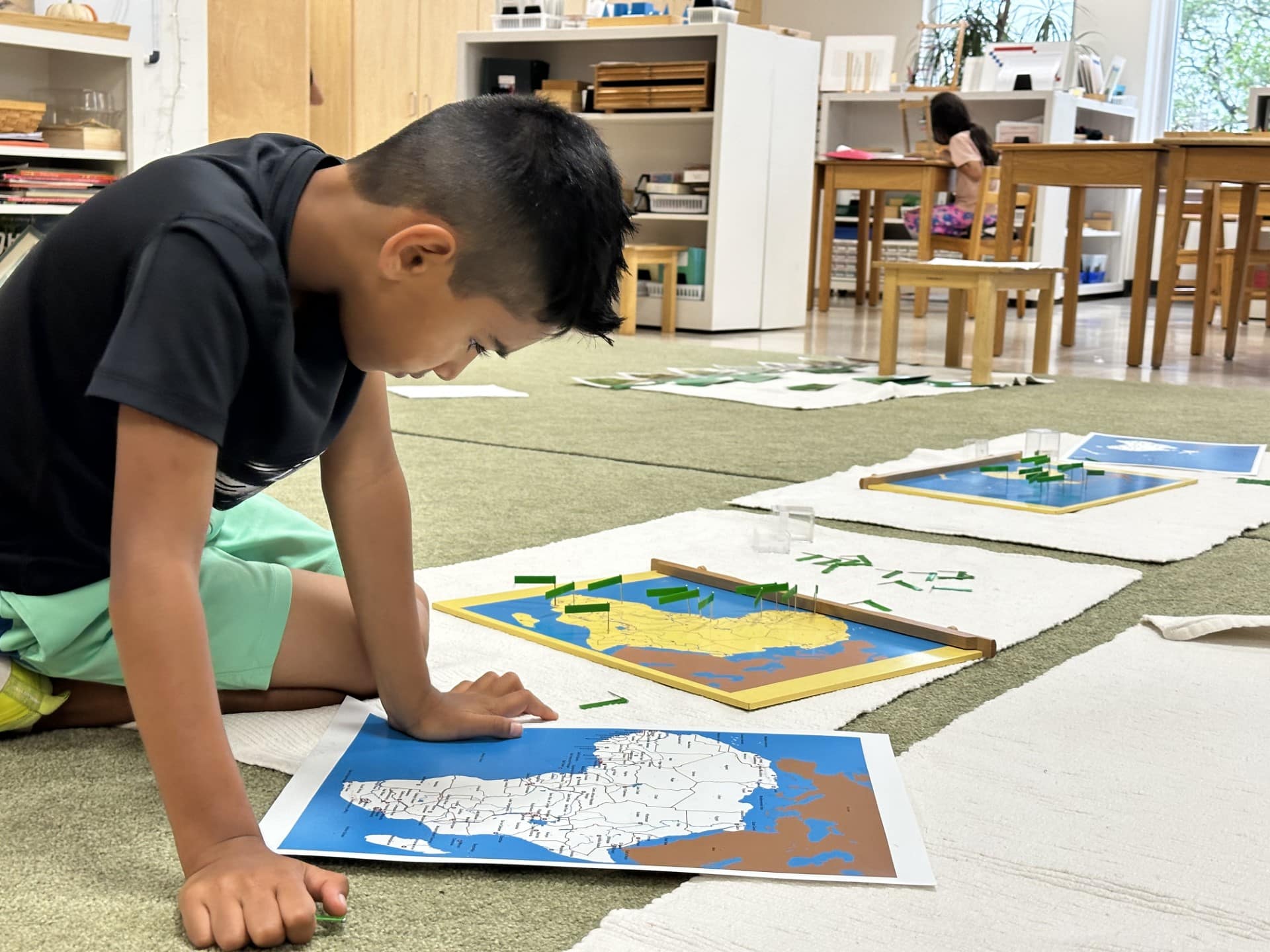Why Montessori
Why Montessori
All parents hope to find the best educational program for their children. They recognize the lasting impact that early learning experiences have on a child’s development and future learning.
For more than 100 years, Montessori schools have been transforming education and shaping the lives of children who grow into productive, happy adults. A new study published in Frontiers in Psychology provides evidence that a Montessori education may be superior to traditional methods of education, especially on measures relating to students’ long-term psychological health and well-being. When comparing the results of those who attended Montessori schools as children with those who attended traditional schools, they found strong evidence of elevated psychological well-being in those who went to Montessori schools as children. (Psychology Today, 2022)

Montessori Curriculum
-

-

-

-

-

-

School Culture
-

-

-

-

-

-

Through these guiding principles, children develop critical skills for academic, professional, and personal success.
Montessori Education vs. Traditional Education
| Montessori | Traditional |
|---|---|
| Development at a student’s own pace—instruction dictated by student’s developmental needs, learning styles, and interests | Development according to structured curriculum appropriate for student’s age or grade |
| Striving for mastery of skills and concepts | Heavy emphasis on grades |
| Hands-on learning | Most information dispensed by lecture |
| Study of various subjects individually or in small groups in different parts of the room | Class, as a group, studying one subject at a time |
| Uninterrupted work periods | Schedule of classes each timed in length with relatively frequent interruptions |
| Freedom of movement | Class seated at desks most of the time |
| Child-centered approach with teacher as a guide | Teacher-centered approach |
| Student as an active participant, involved in “doing” | Limited opportunities for active participation |
| Learning through mastery of lesson and repetition, which reinforces internal feelings of success, competency, and self-confidence | Learning reinforced externally by competition, grades, test scores, and rewards |
| Environment and method that encourage self-discipline and self-direction in the learning process | Teacher direction of the student’s learning process and discipline |
